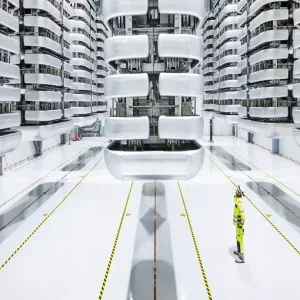The 4,300km Trans-Saharan gas pipeline’s departure terminal would be Brass in the Niger delta and its arrival terminal could be either Beni Saf or El Kala in Algeria. The pipeline’s capacity should reach up to 30 billion cubic meters starting by 2015, the European Commission (EC) said in a press release regarding the conference.
At the conference, Mr Piebalgs emphasized the importance of energy co-operation through the existing Euromed framework and the forthcoming EU-Africa energy partnership. He also underlined that the diversification of suppliers and routes is a key part of the EU’s strategy for the security of energy supply.
Mr Piebalgs said: The Trans-Sahara gas pipeline could constitute a promising supply source and route for the EU. In this context, the available proven gas reserves, the feasibility of the project, its economic viability and the geopolitical developments in the region need to be clearly assessed.
The conference presenting the Trans-Saharan gas pipeline was initiated by the Algerian minister of energy and mining, Mr Khelil, Algeria’s state-owned energy player Sonatrach and the Nigerian ministry of energy. Its main purpose was to present the pipeline project, discuss its feasibility and attract potential investors.
The EC said that EU access to Nigerian gas reserves is particularly crucial since increasing European demand for natural gas and declining domestic production will result in a significant growth of import dependency. Indeed, natural gas imports may reach 85% of EU gas consumption by 2030, compared to 50% in 2000.
Nigerian gas reserves are estimated at five trillion cubic meters – equal to roughly 10 years of consumption in the EU. The EC said that, as a result, the available Nigerian gas reserves need to be carefully assessed, taking into consideration the current and future liquid natural gas needs on a local and a global scale.






